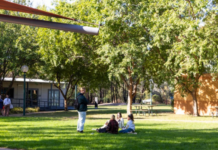Being a university student at La Trobe University is an exciting time, but it often comes with new financial responsibilities. Managing your money effectively is crucial for a stress-free and successful student life. A well-structured budget is your best tool for staying on top of your finances. Here is how you can start.
Identify the sources of income
The first step is to know where your money is coming from and where it’s going. This would typically include things like:
- Part-time job wages
- Youth Allowance or other government payments
- Scholarships or bursaries
- Money from family
- Any other avenue of earning
Keep track of your expenses
Make it a habit to record everything you spend. It’s helpful to track your spending for at least a few weeks to get an accurate picture. A simple way to do this is to categorise your expenses into needs and wants.
Needs are essential costs you can’t avoid.
- Rent/Accommodation
- Utilities (electricity, internet, phone)
- Groceries
- Public transport or petrol
- Textbooks and course materials
- Loan repayments
Wants are flexible or non-essential expenses that are adjustable
- Eating out and takeaway food
- Coffee
- Social events and entertainment
- Subscriptions (Netflix, Spotify, etc.)
- Shopping for clothes or other non-essential items
Ideally, your income should be more than your expenses. If you’re spending more than you earn, it’s time to make some cuts, starting with your wants.
There are great budgeting apps like PocketSmith that can help you track your spending and stick to your plan.
Over budget? Here are simple tips to stay on track
- Cook at home: Takeaway and dining out are big budget killers. Meal prepping can save you significant money and time. Look for recipes that use budget-friendly ingredients.
- Use your student card: Your La Trobe University student card is a powerful tool. Use it to get discounts on public transport, movie tickets, and at many retailers both in-store and online. Always ask if they offer a student discount.
- Buy second-hand: Before buying new, check out second-hand options for textbooks, furniture, and clothes. Websites like Gumtree, Facebook Marketplace, and local op shops are great resources.
Still unsure about how to balance your budget?
Another common budgeting method that is used widely is the 50/30/20 rule. Put simply, it is:
- 50% of your income: Goes to needs like rent, bills, and groceries.
- 30% of your income: Goes to wants like entertainment, dining out, and hobbies.
- 20% of your income: Goes to savings and paying off debt.
Remember to adjust the percentages to fit your unique financial situation.
Additional resources and help is available
- Moneysmart – A comprehensive budgeting website with a specific section for student life.
- Study Melbourne – Provides information and a cost of living calculator to help you budget for life as a student in Melbourne.
- La Trobe University Financial Counselling – If you are facing a challenging financial time and want to chat about your circumstances, La Trobe University provides free and confidential financial counselling.














